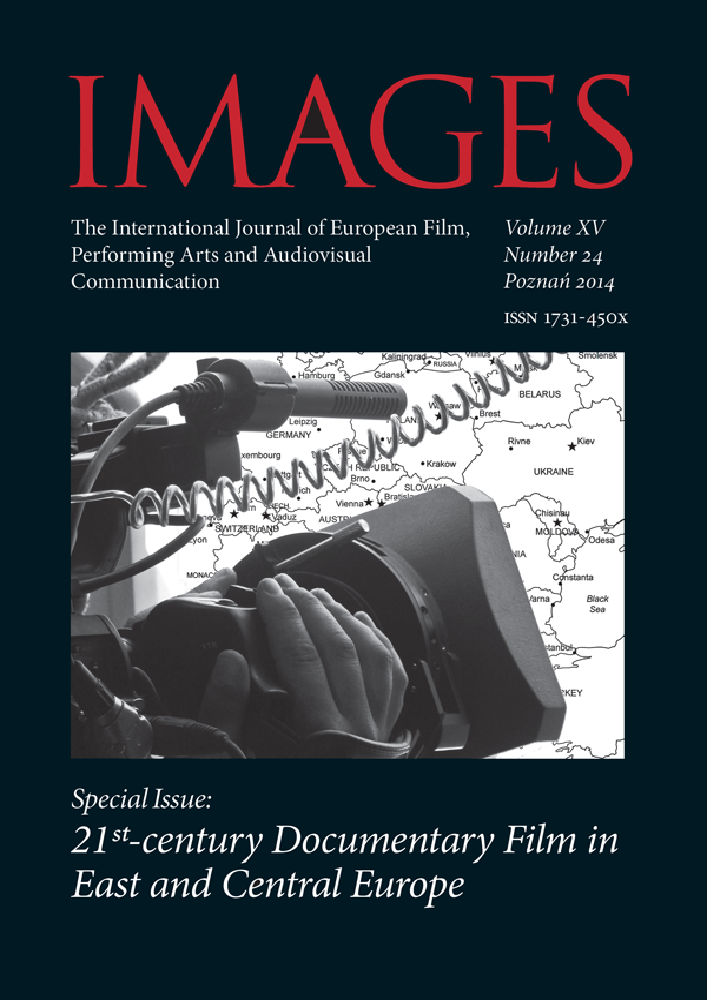Abstract
At first glance, the documentary films that the outstanding Polish filmmaker Grzegorz Królikiewicz was making at the turn of the 1970s, may seem less experimental than his feature films (one only needs to recall such innovative films as Through and Through or The Dancing Hawk). Viewed against the context of certain radical formal decisions, they may even strike one as traditional. Nevertheless, if one were to look closely at Królikiewicz’s early documentaries, one can see that they are more complicated than they seem and that what we have there is “unobvious” experimental cinema. An internal conflict is created by the relationship between form and content, the tension between them, and sometimes even discussion. This concerns his poetic short films (Don’t Cry, Brothers and Men), based in part on Królikiew- icz’s conception of “off-screen cinema space”, as well as his psychodramas (Fidelity, The Murderer’s Letter). The true message of these films has been carefully concealed, and has to be looked for in the way the director presents everyday reality to us.
References
B. Drozdowski, “Zmiana warty” [Changing of the Guard], Kino 1974, no. 1, p. 21.
A. Michalak, “Przełom w polskim dokumencie – program artystyczny ‘szkoły krakowskiej’” [A Breakthrough in Polish Documentary Cinema – Artistic Programme of the ‘Krakow School’], in: Kino polskie: reinterpretacje. Historia – ideologia – polityka, eds. K. Klejsa, E. Nurczyńska-Fidelska, Rabid, Krakow 2008, p. 440.
P. Kletowski, P. Marecki, Królikiewicz: Pracuję dla przyszłości [Working for the Future], Korporacja Ha!art, Kraków 2011, p. 245.
License
Copyright
© by Adam Mickiewicz University, Poznań, 2014
OPEN ACCESS
